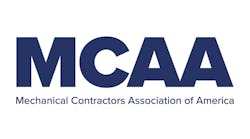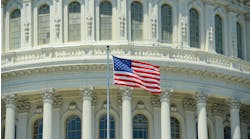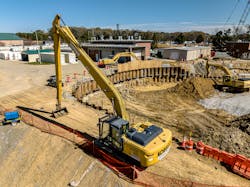Latest from Around the Web
Sponsored
A Day Without Water: A Caffeine Crisis or a Wake-Up Call?
Imagine waking up one morning to discover there's no water to brew your much-needed cup of coffee. The entire nation spirals into chaos as caffeine-deprived workers attempt to navigate a world without their beloved brew.
- Classrooms descend into pandemonium as teachers, without their morning pick-me-up, watch students run amok, dazed at their desks, powerless without their caffeinated fuel to wrangle students into learning.
- Journalists, too sleepy to chase leads, submitted stories with headlines like "Something Happened Somewhere" or "Breaking: We'll Get to This Later." News would come to a standstill.
- Hospitals struggle as surgeons, fueled by nothing but exhaustion, mistake X-rays for Rorschach inkblot tests and diagnose patients with "whatever's going around."
While these absurd scenarios paint a picture of coffee-less chaos, they highlight our deep reliance on clean water—not just for our favorite beverages but also for our routines, health and the essential services that keep society functioning.
Behind the water-related coffee deprivation humor lies a very real, much more severe issue: millions of Americans live without reliable access to clean water daily.
From Absurd to Alarming: The Urgent Water Crisis
A severe crisis is unfolding across the Southeast while communities in Western North Carolina, Florida and Tennessee grapple with the devastating consequences of recent extreme storms. Hurricanes and floods have torn through homes, washed away roads and left entire towns isolated as vital infrastructure is dismantled. An expensive and emotional recovery lies ahead as residents struggle to access a basic necessity: clean water.
When treatment plants cannot handle the load and pipelines are destroyed, authorities instruct residents to boil water because of potential microbial contamination. People must boil water to drink, cook or maintain hygiene. Businesses grind to a halt, schools shut down and hospitals struggle to maintain patient care. Even worse, some people may experience the absence of water altogether.
Boil water advisories are not exclusive to natural disasters or one region. They're frequently issued because of crumbling infrastructure, corroded pipes or lapses in maintenance that allow contaminants to seep into the water supply. These advisories happen far more frequently than most realize, impacting communities from small Midwestern towns to major cities like Houston, Baltimore, Jackson and Pittsburgh.
This is more than an inconvenience; it has become a daily reality that disrupts lives, threatens health and disproportionately impacts vulnerable populations who are least equipped to cope.
Finding Solutions
As communities rebuild, let's aim higher than simply restoring what was lost. Building stronger, smarter systems prepared for future challenges is possible when we embrace innovative ideas, rethink our water infrastructure and safeguard water, our most vulnerable resource.
Visionary communities and organizations recognize the urgency and respond with pioneering solutions by reimagining and reinforcing local water infrastructure.
Treating rooftop and parking lot water runoff in Gwinnett County
Gwinnett County, Georgia, this year’s Ferguson Waterworks's Urban Green Infrastructure Challenge winner, transformed its Department of Water Resources (DWR) Central Campus into a "living laboratory." Located at the source of the Ocmulgee River Basin, it showcases cutting-edge water management techniques that protect the environment while supporting long-term community growth and resilience.
Today, residents, students and researchers can observe the two FocalPoint biofilters and precast porous concrete sidewalks in action. These biofilters treat rooftop and parking area runoff by eliminating pollutants like sediment and nutrients. This project exemplifies how public-private collaboration builds resilience, supporting the environment and the industrial, commercial and institutional facilities that rely on sustainable water systems.
Providing rain catchment installations in Appalachia
In rural Appalachia, DigDeep is actively addressing water scarcity. In McDowell County, West Virginia, an area marked by economic decline, DigDeep the organization is installing modern water systems, including rain catchment solutions, to ensure residents have reliable access to clean water.
Their efforts uplift communities, restore dignity and open new opportunities, demonstrating that water equity is not only about infrastructure—it's about empowerment.
Saving 39 million gallons of leaking water in Albany
Non-Revenue Water (NRW), water lost to leaks before it reaches consumers, is a major yet often overlooked issue, wasting precious resources and straining already-burdened utilities.
In collaboration with Aquarius Spectrum (AQS) and Ferguson Waterworks, the City of Albany Water Department took decisive action. Engineers deployed leak sensors across nearly four miles of cast iron pipes using advanced acoustic leak detection sensors and GIS data. Within days, multiple leaks were detected, leading to the identification and repair of 10 leaks, saving nearly 39 million gallons of water annually.
Bo Camposano , Vice President for Waterworks at Ferguson, says, "By tackling NRW, we’re not only conserving vital water supplies but also returning lost revenue to utilities, helping them reinvest in infrastructure and better serve their communities, especially in times of crisis."
The Business Imperative of Water Investment
These initiatives demonstrate that reimagining and investing in water infrastructure is a strategic economic imperative beyond stewardship and social responsibility. Industries ranging from manufacturing to healthcare depend on it.
"When communities thrive, businesses do too. By ensuring communities have robust water systems, a ripple effect occurs, strengthening the economy as a whole. It's more than being a good corporate citizenship; it's a strategic move that fuels economic growth for everyone involved," says Camposano.
What can you do?
Imagining a coffee-less world is a lighthearted way to spark a serious conversation and make the call to action more accessible.
- Support Infrastructure Investment: Advocate for policies that prioritize upgrading water systems.
- Partner with organizations like DigDeep: Support initiatives that bring clean water to underserved areas.
- Protect Water Resources: Fix leaks, use efficient appliances, practice mindful consumption and support efforts to clean and protect local waterways.
- Spread Awareness: Talk to others about the importance of water infrastructure and the need for sustainable solutions.
Building a Resilient Future
For millions, a day without water is not just hypothetical—it’s a daily reality. Taking action now ensures everyone has access to clean, safe water.
Because while it’s easy to joke about a world without coffee, living without water is no laughing matter.




